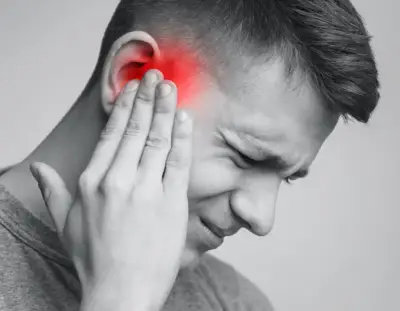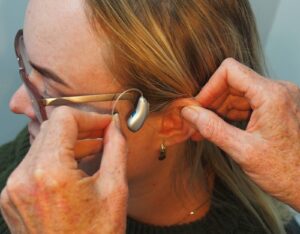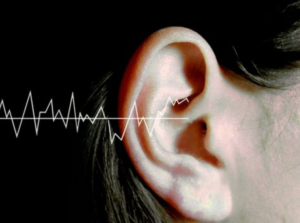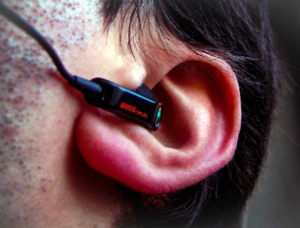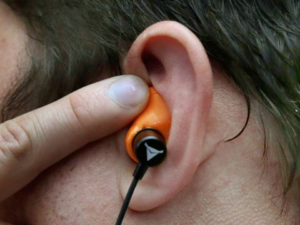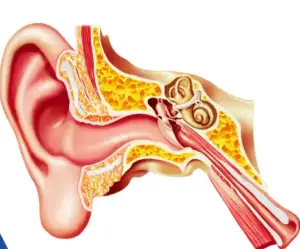Is bass bad for your ears? The question of whether the deep, resonating tones of bass music can have a detrimental impact on our hearing has long been a subject of debate and concern among music enthusiasts, audiophiles, and health professionals. In this exploration, we’ll examine the science behind bass sounds and the mechanics of hearing.
Bass frequencies can be particularly dangerous because they can travel through bone and other tissues to reach the inner ear. The inner ear contains the cochlea, a spiral-shaped organ that contains tiny hairs that convert sound waves into electrical signals that are sent to the brain. When these hairs are exposed to loud noise, they can become damaged or even die.
Research has shown that bass frequencies can damage the cochlea at lower decibel levels than higher frequencies. This is because bass frequencies can cause the cochlea to vibrate more vigorously. Additionally, bass frequencies can mask higher frequencies, making it difficult to hear them. This can lead people to turn up the volume, which can further damage their hearing.
If you are exposed to loud bass noise, you may experience ringing in your ears (tinnitus), muffled hearing, or difficulty understanding speech. These symptoms may be temporary or permanent, depending on the severity. To protect your hearing from bass noise, avoid listening to music or other sounds at high volumes. If you are in a noisy environment, wear earplugs or earmuffs.
Can bass music harm your hearing?
Bass music can harm your hearing, just like any other loud sound. The louder the sound, the more damage it can do to the delicate hair cells in your inner ear. These hair cells are responsible for converting sound waves into electrical signals that travel to the brain. When hair cells are damaged, they cannot be repaired, and this can lead to permanent hearing loss.
Bass music is often played at very high volumes, especially in nightclubs and concert venues. This can put you at risk for hearing loss, even if you are only exposed to it for a short period of time.
Here are some ways to protect your hearing when listening to bass music:
- Turn down the volume. The louder the sound, the more damage it can do to your hearing. A good rule of thumb is to keep the volume at a level where you can still talk to someone without having to shout.
- Take breaks. If you are listening to bass music for an extended period of time, take breaks to give your ears a rest.
- Wear earplugs. Earplugs can help to reduce the volume of the sound by up to 30 decibels. This can make a big difference in protecting your hearing.
Does bass affect your ears negatively?
Bass can affect your ears negatively, especially if it is at a high volume. Bass frequencies are low-pitched sounds that can cause the eardrum and inner ear bones to vibrate vigorously. This can damage the delicate hair cells in the inner ear, which can lead to hearing loss.
Hearing loss from loud noise exposure is permanent and irreversible. It can also cause tinnitus, a ringing or buzzing sound in the ears.
Bass is often played at high volumes in nightclubs, concert venues, and even in cars. If you are exposed to loud bass frequently, you are at risk for hearing loss.
To protect your hearing when listening to bass, follow these tips:
- Turn down the volume. The louder the sound, the more damage it can do to your hearing.
- Take breaks. If you are listening to bass for an extended period of time, take breaks to give your ears a rest.
- Wear earplugs. Earplugs can help to reduce the volume of the sound by up to 30 decibels. This can make a big difference in protecting your hearing.
If you experience any of the following symptoms after listening to bass, it is important to see a doctor or audiologist:
- Ringing in the ears (tinnitus)
- Muffled hearing
- Pain in the ears
- Difficulty understanding speech
If you have any concerns about hearing loss, be sure to talk to your doctor or audiologist. They can test your hearing and provide you with more information on how to protect it.
Is loud bass detrimental to your hearing?
Loud bass can be detrimental to your hearing. Just like any other loud sound, it can damage the delicate hair cells in your inner ear. These hair cells are responsible for converting sound waves into electrical signals that travel to the brain. When hair cells are damaged, they cannot be repaired, and this can lead to permanent hearing loss.
Bass frequencies are low-pitched sounds, but they can still be very loud. In fact, bass frequencies can be more damaging to your hearing than high-pitched sounds, because they can cause your eardrum and inner ear bones to vibrate more vigorously.
Loud bass is often played in nightclubs, concert venues, and even in cars. If you are exposed to loud bass frequently, you are at risk for hearing loss.
How does bass impact ear health?
Bass can impact ear health in a number of ways.
- Hearing loss: Bass frequencies can cause hearing loss, just like any other loud sound. The louder the sound, the more damage it can do to the delicate hair cells in your inner ear. These hair cells are responsible for converting sound waves into electrical signals that travel to the brain. When hair cells are damaged, they cannot be repaired, and this can lead to permanent hearing loss.
- Tinnitus: Tinnitus is a ringing or buzzing sound in the ears that can be caused by exposure to loud noise. Bass frequencies can also cause tinnitus.
- Other ear problems: Bass frequencies can also cause other ear problems, such as ear pain, ear congestion, and dizziness.
It is important to note that bass frequencies do not have to be extremely loud to cause damage to your hearing. Even moderate levels of bass exposure can be harmful if it is prolonged.
Can excessive bass cause ear damage?
Excessive bass can cause ear damage. Just like any other loud sound, bass can damage the delicate hair cells in your inner ear. These hair cells are responsible for converting sound waves into electrical signals that travel to the brain. When hair cells are damaged, they cannot be repaired, and this can lead to permanent hearing loss.
Bass frequencies are low-pitched sounds, but they can still be very loud. In fact, bass frequencies can be more damaging to your hearing than high-pitched sounds, because they can cause your eardrum and inner ear bones to vibrate more vigorously.
Excessive bass exposure is often found in nightclubs, concert venues, and even in cars. If you are exposed to excessive bass frequently, you are at risk for hearing loss.
To protect your hearing when listening to bass, follow these methods:
- Turn down the volume. The louder the sound, the more damage it can do to your hearing. A good rule of thumb is to keep the volume at a level where you can still talk to someone without having to shout.
- Take breaks. If you are listening to bass for an extended period of time, take breaks to give your ears a rest.
- Wear earplugs. Earplugs can help to reduce the volume of the sound by up to 30 decibels. This can make a big difference in protecting your hearing.
Is there a safe level of bass for your ears?
There is a safe level of bass for your ears. The Occupational Safety and Health Administration (OSHA) recommends that adults be exposed to no more than 85 decibels (dB) of noise for eight hours per day.
For every 3 dB increase in noise level, the safe exposure time is reduced by half. This means that adults can be exposed to 91 dB of noise for four hours per day, 97 dB of noise for two hours per day, and so on.
The safe level of bass for your ears will vary depending on a number of factors, including your age, your overall health, and the duration of your exposure. If you are concerned about the level of bass exposure you are receiving, it is best to talk to your doctor or audiologist.
Here are some methods for listening to bass safely:
- Keep the volume down. The louder the sound, the more damage it can do to your ears. A good rule of thumb is to keep the volume at a level where you can still talk to someone without having to shout.
- Take breaks. If you are listening to bass for an extended period of time, take breaks to give your ears a rest.
- Wear earplugs. Earplugs can help to reduce the volume of the sound by up to 30 decibels. This can make a big difference in protecting your hearing.
- Be aware of your surroundings. If you are in a noisy environment, such as a nightclub or concert venue, try to move to a quieter area.
- Avoid listening to bass with headphones or earbuds. Headphones and earbuds can amplify the sound, which can increase your risk of hearing loss.
- Get regular hearing checks. Hearing checks can help to detect hearing loss early when it is most treatable.
What are the risks of bass to your hearing?
Bass music can be enjoyable, but it can also pose risks to your hearing. Bass frequencies are low-pitched sounds that can cause the eardrum and inner ear bones to vibrate vigorously. This can damage the delicate hair cells in the inner ear, which can lead to permanent hearing loss.
The risks of bass to your hearing depend on a number of factors, including:
- The volume of the music
- The duration of your exposure
- Your distance from the speakers
- Your overall health
If you are exposed to loud bass frequently, even for short periods of time, you are at risk for hearing loss. Hearing loss from loud noise exposure is permanent and irreversible.
Here are some of the risks of bass to your hearing:
- Hearing loss: Bass can damage the delicate hair cells in your inner ear, which can lead to permanent hearing loss.
- Tinnitus: Tinnitus is a ringing or buzzing sound in the ears that can be caused by exposure to loud noise. Bass can also cause tinnitus.
- Other ear problems: Bass can also cause other ear problems, such as ear pain, ear congestion, and dizziness.
It is important to note that bass frequencies do not have to be extremely loud to cause damage to your hearing. Even moderate levels of bass exposure can be harmful if it is prolonged.
Does prolonged exposure to bass harm your ears?
Prolonged exposure to bass can harm your ears. Bass frequencies are low-pitched sounds that can cause the eardrum and inner ear bones to vibrate vigorously. This can damage the delicate hair cells in the inner ear, which can lead to permanent hearing loss.
The risks of bass to your hearing depend on a number of factors, including:
- The volume of the music
- The duration of your exposure
- Your distance from the speakers
- Your overall health
If you are exposed to loud bass frequently, even for short periods of time, you are at risk for hearing loss. Hearing loss from loud noise exposure is permanent and irreversible.
Here are some of the risks of bass to your hearing:
- Hearing loss: Bass can damage the delicate hair cells in your inner ear, which can lead to permanent hearing loss.
- Tinnitus: Tinnitus is a ringing or buzzing sound in the ears that can be caused by exposure to loud noise. Bass can also cause tinnitus.
- Other ear problems: Bass can also cause other ear problems, such as ear pain, ear congestion, and dizziness.
It is important to note that bass frequencies do not have to be extremely loud to cause damage to your hearing. Even moderate levels of bass exposure can be harmful if it is prolonged.
To protect your hearing when listening to bass, follow these tips:
- Turn down the volume. The louder the sound, the more damage it can do to your hearing. A good rule of thumb is to keep the volume at a level where you can still talk to someone without having to shout.
- Take breaks. If you are listening to bass for an extended period of time, take breaks to give your ears a rest.
- Wear earplugs. Earplugs can help to reduce the volume of the sound by up to 30 decibels. This can make a big difference in protecting your hearing.
- Be aware of your surroundings. If you are in a noisy environment, such as a nightclub or concert venue, try to move to a quieter area.
- Avoid listening to bass with headphones or earbuds. Headphones and earbuds can amplify the sound, which can increase your risk of hearing loss.
- Get regular hearing checks. Hearing checks can help to detect hearing loss early, when it is most treatable.
How can you protect your ears from bass?
Headphones with heavy bass are not necessarily dangerous for ears, but they can be if you listen to them at too high of a volume. Any sound above 80 decibels (dB) can cause hearing loss over time, and bass frequencies can be particularly damaging because they are more difficult for the ear to filter out.
If you are concerned about protecting your hearing, there are a few things you can do when using headphones with heavy bass:
- Keep the volume low. A good rule of thumb is to keep the volume at a level where you can still hear people talking in the background.
- Take breaks. If you are listening to headphones for a long period of time, take breaks every 20-30 minutes to give your ears a rest.
- Use high-fidelity earplugs or ANC headphones. High-fidelity earplugs and ANC headphones can help to reduce the volume of the music without sacrificing sound quality.
If you experience any ringing or buzzing in your ears after using headphones, it is important to stop listening and give your ears a chance to recover. If the symptoms persist, see a doctor or hearing specialist.
Here are some additional methods for protecting your ears from bass:
- Avoid using headphones in noisy environments.
- If you are using headphones while exercising, make sure to choose a pair that is designed for this purpose and that fits snugly.
- Be aware of the signs of hearing loss, such as difficulty understanding speech in noisy environments or the need to turn up the volume on the TV or radio.
Are headphones with heavy bass dangerous for ears?
Headphones with heavy bass are not necessarily dangerous for ears, but they can be if you listen to them at too high of a volume. Any sound above 80 decibels (dB) can cause hearing loss over time, and bass frequencies can be particularly damaging because they are more difficult for the ear to filter out.
If you are concerned about protecting your hearing, there are a few things you can do when using headphones with heavy bass:
- Keep the volume low. A good rule of thumb is to keep the volume at a level where you can still hear people talking in the background.
- Take breaks. If you are listening to headphones for a long period of time, take breaks every 20-30 minutes to give your ears a rest.
- Use high-fidelity earplugs or ANC headphones. High-fidelity earplugs and ANC headphones can help to reduce the volume of the music without sacrificing sound quality.
If you experience any ringing or buzzing in your ears after using headphones, it is important to stop listening and give your ears a chance to recover. If the symptoms persist, see a doctor or hearing specialist.
Here are some additional tips for protecting your ears from bass:
- Avoid using headphones in noisy environments.
- If you are using headphones while exercising, make sure to choose a pair that is designed for this purpose and that fits snugly.
- Be aware of the signs of hearing loss, such as difficulty understanding speech in noisy environments or the need to turn up the volume on the TV or radio.
Can bass at concerts hurt your hearing?
Bass at concerts can hurt your hearing. Bass frequencies are low-pitched sounds that can be very powerful. When they are played at high volumes, they can damage the hair cells in the inner ear, which can lead to hearing loss.
The louder the sound, the more damage it can do to your hearing. Even short-term exposure to loud noise can cause temporary hearing loss, which usually goes away within a few hours or days. However, repeated exposure to loud noise can cause permanent hearing loss.
Concerts are often very loud, with sound levels reaching 100 decibels (dB) or more. This is significantly louder than the recommended safe volume level of 85 dB.
If you are concerned about protecting your hearing at concerts, there are a few things you can do:
- Use earplugs or earmuffs. Earplugs and earmuffs can help to reduce the volume of the sound that reaches your ears. There are many different types of earplugs and earmuffs available, so you can find a pair that is comfortable for you to wear and that provides the level of protection you need.
- Move away from the speakers. If you are standing near the speakers at a concert, try to move further away. This will help to reduce the amount of sound that reaches your ears.
- Take breaks from the noise. If you are exposed to loud noise for a prolonged period of time, give your ears a break by going to a quieter place for a while.
As you know, hearing loss is permanent, so it is important to protect your ears from loud noises, including bass at concerts.
What’s the link between bass and ear damage?
The link between bass and ear damage is that bass frequencies can be very powerful, even when they are played at relatively low volumes. When bass frequencies are played at high volumes, they can damage the hair cells in the inner ear, which can lead to hearing loss.
The hair cells in the inner ear are responsible for converting sound waves into electrical signals that are sent to the brain. When the hair cells are damaged, they cannot convert sound waves as efficiently, which can lead to hearing loss.
Bass frequencies are more difficult for the ear to filter out than other frequencies, which is why they can be more damaging. This is because bass frequencies have a longer wavelength, which means that they can travel deeper into the ear canal.
In addition, bass frequencies can cause the eardrum to vibrate more violently than other frequencies. This can also damage the hair cells in the inner ear.
The risk of hearing loss from bass exposure increases with the volume and duration of exposure. Even short-term exposure to loud bass can cause temporary hearing loss, which usually goes away within a few hours or days. However, repeated exposure to loud bass can cause permanent hearing loss.
Is there a volume threshold for bass safety?
There is no single volume threshold for bass safety, as the risk of hearing loss depends on a number of factors, including the volume, duration of exposure, and individual susceptibility.
However, the National Institute for Occupational Safety and Health (NIOSH) recommends that workers be exposed to no more than 85 decibels (dB) of noise over an 8-hour workday. This includes all types of noise, including bass.
Some experts believe that bass frequencies may be more damaging to the ear than other frequencies, even at lower volumes. This is because bass frequencies are more difficult for the ear to filter out. Therefore, it is recommended to keep the volume of bass frequencies lower than the recommended 85 dB threshold.
If you are concerned about protecting your hearing from bass exposure, there are a few things you can do:
- Avoid loud noises, including loud bass.
- Wear earplugs or earmuffs when exposed to loud noise.
- Move away from the source of the bass.
- Take breaks from loud noise.
If you experience any ringing or buzzing in your ears after exposure to loud bass, it is important to stop listening to loud noises and give your ears a chance to recover. If the symptoms persist, see a doctor or hearing specialist.
Are earplugs necessary for bass-heavy events?
Whether or not earplugs are necessary for bass-heavy events depends on a few factors, including the volume of the event, the duration of your exposure, and your individual susceptibility to hearing loss.
Bass-heavy events, such as concerts and nightclubs, can be very loud, with sound levels reaching 100 decibels (dB) or more which might require earplugs. This is significantly louder than the recommended safe volume level of 85 dB.
Exposure to loud noise, including bass, can damage the hair cells in the inner ear, which can lead to hearing loss. Hearing loss is permanent, so it is important to protect your ears from loud noises.
If you are attending a bass-heavy event, it is a good idea to wear earplugs. Earplugs can help to reduce the volume of the sound that reaches your ears and protect your hearing.
There are many different types of earplugs available, so you can find a pair that is comfortable for you to wear and that provides the level of protection you need.
If you are not sure whether or not you need earplugs for a particular event, it is always best to err on the side of caution and wear them.
Here are some additional ways to protect your ears at bass-heavy events:
- Avoid standing directly in front of the speakers.
- If you are with a group of people, try to stand closer to the people who are talking the least.
- Take breaks from the noise. If you are exposed to loud noise for a prolonged period of time, give your ears a break by going to a quieter place for a while.
- Be aware of your surroundings and take steps to protect your hearing if you are in a noisy environment.
If you experience any ringing or buzzing in your ears after a bass-heavy event, it is important to stop listening to loud noises and give your ears a chance to recover. If the symptoms persist, see a doctor or hearing specialist.
Can low-frequency bass harm your ear health?
Low-frequency bass can harm your ear health. Low-frequency bass sounds are more difficult for the ear to filter out than higher-pitched sounds, so they can travel deeper into the ear canal and damage the hair cells in the inner ear.
The hair cells in the inner ear are responsible for converting sound waves into electrical signals that are sent to the brain. When the hair cells are damaged, they cannot convert sound waves as efficiently, which can lead to hearing loss.
Low-frequency bass can also cause the eardrum to vibrate more violently than higher-pitched sounds. This can also damage the hair cells in the inner ear.
The risk of hearing loss from low-frequency bass exposure increases with the volume and duration of exposure.
Even short-term exposure to loud low-frequency bass can cause temporary hearing loss, which usually goes away within a few hours or days. However, repeated exposure to loud low-frequency bass can cause permanent hearing loss.
Conclusion
Is bass bad for your ears? While enjoying bass-heavy music or experiencing the occasional thumping beat at a concert can be a thrilling experience, it’s essential to exercise caution and moderation. Prolonged and excessive exposure to high-intensity bass sounds can indeed be bad for your ears, potentially leading to hearing damage and long-term consequences.
Protecting your hearing by using ear protection at loud events and limiting exposure to excessively loud bass is crucial to maintaining auditory health and enjoying music for years to come. Remember, striking the right balance between enjoying bass and safeguarding your hearing is key to preserving your auditory well-being.

